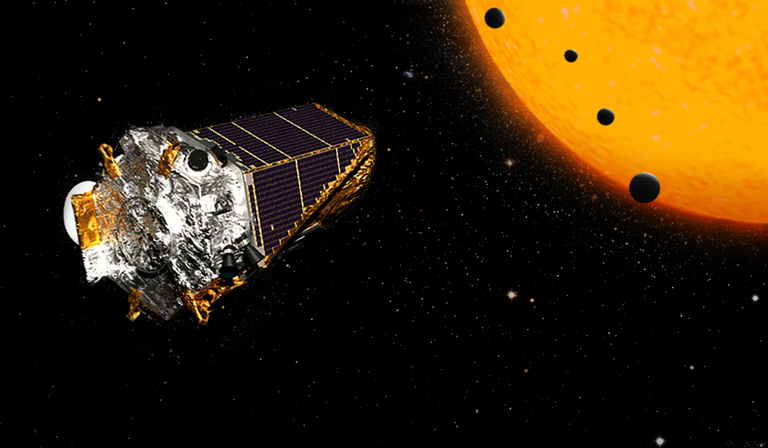
In Brief
Have you ever wanted to discover an exoplanet? Google recently made their exoplanet-hunting AI open source on Github so you can hunt for exoplanets at home.
To find new exoplanets, just turn to Google.
Last year, an artificial intelligence (AI) network, equipped with data from the Kepler space telescope, discovered two new exoplanets. Now, citizen scientists looking to support discovery at home can use the exoplanet-hunting neural network — Google plans to make it open source, a Google engineer announced recently in a blog post.
Exoplanets are difficult to find and harder to directly observe – most of the time scientists only know these celestial bodies exist when they block some light from their closest star. To help scientists learn more about exoplanets, including those in the “Goldilocks Zone” (the “just right” zone in which planets are most likely to host life), NASA launched the Kepler spacecraft in 2009. Its mission: make observations that might lead to the discovery of exoplanets.
It has already succeeded, and has returned a ton of data. Astronomers have been sifting through the most promising data Kepler returned, specifically 30,000 of its strongest stellar signals from 150,000 stars. Out of those, they discovered 2,500 exoplanets.
There was a lot more data, though, weaker signals too messy or subtle for humans to identify. That’s where the AI comes in. AI can discover previously unknown exoplanets because it can recognize patterns in the Kepler data humans couldn’t see. That’s how the algorithm found the two exoplanets — by analyzing 700 of the weaker signals.
This means there are still 119,300 of those weaker signals left to analyze. And the more computational power used to analyze them, the more exoplanets will be discovered.
<figure style="width: 777px" class="wp-caption aligncenter">
<figcaption class="wp-caption-text">This AI allows you to use Kepler’s data to find exoplanets. Image Credit: NASA</figcaption></figure>
For those looking to add their computers to the mix, the code for this algorithm and instructions on how to use it can be found and downloaded on Github. Users will have to train the algorithm before they can use it to find new planets. Unfortunately, though, the program isn’t exactly the most user-friendly. You’ll probably need some understanding or experience with Google’s machine learning software, TensorFlow, and also Python.
Citizen scientists are playing an increasingly important role in processing the amount of data it takes to discover a new exoplanet. Recently, a group known as the Exoplanet Explorers discovered the planetary system K2-138, marking the first time that a multi-planet system was discovered entirely by the public.
Source
I remember doing some research on exoplanets and one technique used is Microlensing - where planets acts as lens to magnify light signals. :)
Woah. Thats amazing and new research to me.
Hey Helen thanks for the important insight. I love space and space exploration in particular. Keep up the good work.
Thank you dear friend. Do follow me for more posts of your interest:)
I will. Only if you continue to post!!! :) :)
Yes for sure :)